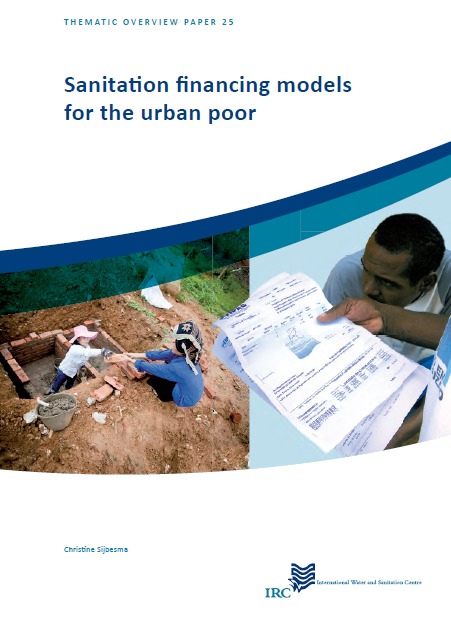
Published in: 2011
Publisher:
International Water and Sanitation Centre (IRC), The Hague, The Netherlands
Author:
Sijbesma, C.
Uploaded by:
SuSanA secretariat
Partner profile:
IRC
6577 Views
194 Downloads
Content - Summary
The provision of sanitation services in low-income urban areas is one of the greatest challenges in development. Population growth in developing countries currently outpaces sanitation growth, especially in urban areas. Consequently, in urban areas where poor people reside, and where "formal" sanitation services are not available to them, they experience the compounded effect of serious economic disadvantages such as high risk to public health; a dirty and contaminated environment; no basic human dignity and safety for a large part of the world’s population, especially for adolescent girls and women.
This Thematic Overview Paper attempts to search for pro-poor financing models that can facilitate the urban poor’s access to complete sanitation services. It catalogues existing financing models and examines each based on an analytical framework that comprises six criteria. It offers a recommendation for mixing financing mechanisms to meet the urban poor’s needs, and makes a plea for developing poor-specific and full-cycle specific plans for sanitation.
Bibliographic information
Sijbesma, C. (2011). Sanitation financing models for the urban poor - Thematic Overview Paper 25. International Water and Sanitation Centre (IRC), The Hague, The Netherlands
Filter tags
English Faecal sludge treatment processes Market development (WG2) Urban (entire city) Urban informal settlements (slums)














